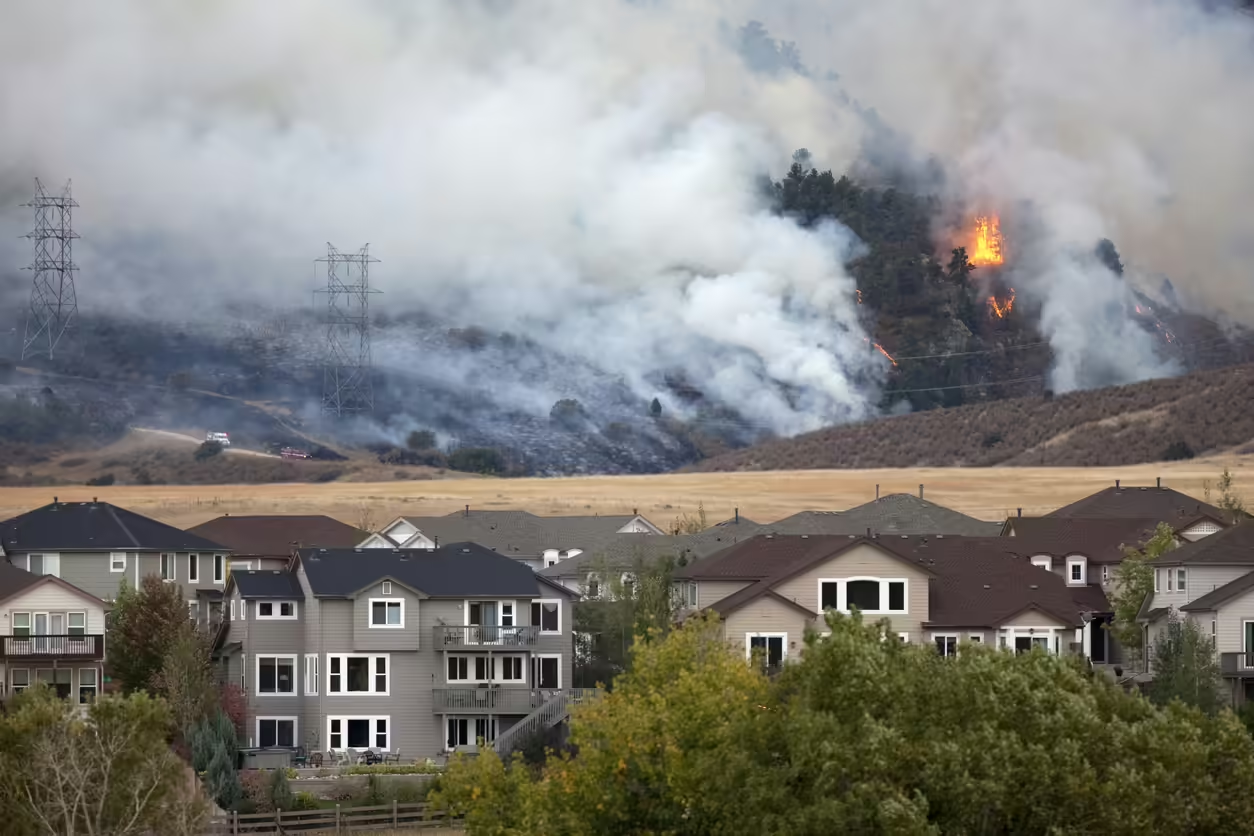Navigating WA Wildfire Claims: A Personal Injury Attorney’s Take


Wildfire losses can be devastating. Abeyta Nelson has helped hundreds of families rebuild their lives.
With summer heat hovering at 100 degrees for several weeks in parts of Washington state, and hot and dry conditions oppressing hundreds of cities across the country, above-normal seasonal fire risk is a reality. Wildfires are becoming a more common threat, with approximately a dozen fires – including the 30,000-acre Chelan County Pioneer Fire – burning concurrently in Washington at the time of this post.
As we experience hotter and drier summers due to climate change, it is expected that wildfire risk will continue to grow. In 2020, for example, the USDA reported that wildfires on the west side of the Cascades in Oregon “burned nearly as much forest in 2 weeks as had burned in the previous 50 years in the area.” In 2021 and 2022, Washington experienced its second- and third-worst fire seasons, respectively. Wildfires in Washington state have surged in recent years, with 2023 continuing a decade-long extreme fire trend. Axios states that, globally, the most “extreme wildfire events during the past two decades more than doubled in frequency and magnitude, with the six worst seasons occurring during the past seven years.”
In general, wildfires are burning faster and hotter, which can increase the growth of invasive species, slow the regrowth of trees, and cause some forest areas to burn more easily and frequently. The Seattle Times reported on two fires last year in Spokane County that “consumed hundreds of homes, burned thousands of acres, and killed two people.”
Wildfire incidents such as these leave rural residents increasingly vulnerable to property damage, emotional trauma and injury, and even death.
What are the most common causes of wildfires?
Although some fires are caused by lightning, the vast majority of wildfires – nearly 90% – are human-caused, according to the Western Fire Chiefs Association (WFCA). While unattended campfires, burning debris or smoldering cigarettes are responsible for many wildfires, in actuality, the WFCA states that “electrical distribution systems are the most common cause of fire by equipment malfunction.” Gas leaks, downed power lines and malfunctioning electrical or utility equipment are frequent reasons for these system failures which can spark massive fires. Improperly maintained or operated vehicles can also cause fires, when exhaust pipes or chains drag and cause sparks around dry terrain, for example.
Damage caused by wildfires
If a wildfire is human-caused, whether by a company or an individual, you may be able to recover your damages and losses to your home, outbuildings, landscaping, livestock, vehicles, equipment, timber, croplands, fencing and more. As incidents of wildfires have increased, so have the costs associated with wildfire damage, which affects thousands of homes and businesses every year. If you or your family experience damage due to a wildfire, it is critical to carefully document all of your losses. This can include a list or photos of property damage, medical records, and any other evidence supporting the claim.
Coping after a wildfire
Beyond property loss, there is an immense mental and physical toll taken on victims in the aftermath of a wildfire. Residents may face serious bodily injuries, impairments or disfiguring burns, requiring extensive medical care. In addition, noxious smoke inhalation may require immediate and long-term medical rehabilitation. Finally, and no less important, wildfire victims may suffer emotional distress from the trauma of having to be evacuated from their property, or watching their home, property or belongings go up in flames.
Abeyta Nelson attorney Rod Nelson, one of the Pacific Northwest’s leading legal experts in wildfires, has recovered $90 M for fire victims over the past 13 years. “Abeyta Nelson’s legal team has helped hundreds of wildfire victims and their families in Central Washington recover from losses and get back on their feet after a devastating wildfire,” said Nelson. “Our goal is to make navigating the claims process easier, so that families get the compensation they deserve, and can move on with their lives,” added Nelson.
For wildfire victims, knowing where to turn for help with personal injury and property damage can be a complicated and frustrating journey, as insurance companies often dispute claims or offer settlements that are too low to cover all damage. In these situations, victims may pursue litigation against parties responsible for the wildfire, such as utility companies or individuals whose negligence contributed to the wildfire. Personal injury attorneys, such as the wildfire experts at Abeyta Nelson Injury Law, are critically important in helping victims navigate this landscape.
What to do if you’ve been affected by wildfire losses
As wildfires continue to pose a significant threat to residents of the Pacific Northwest, it’s important for residents to fire-proof their property by keeping vegetation trimmed and away from homes and outbuildings. If fire does threaten your property, stay alert for evacuation orders and always ensure your family’s health and safety remain the first priority.
If you’ve been a victim of a wildfire or have questions about a potential claim, Abeyta Nelson provides the necessary legal support to make a substantial difference in understanding the complex claims process, helping you recover from losses. Consult with our attorneys today, who will advocate for you and ensure your rights are protected.
-blog written by attorney Rodney K. Nelson, Abeyta Nelson Injury Law